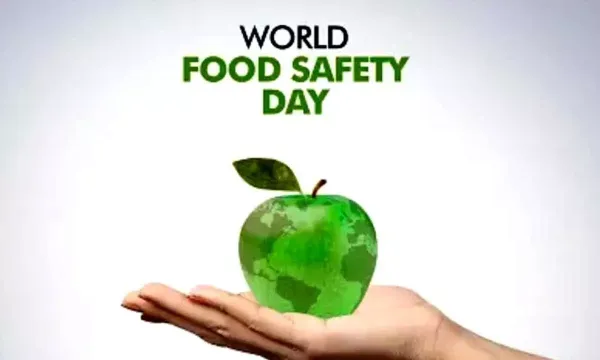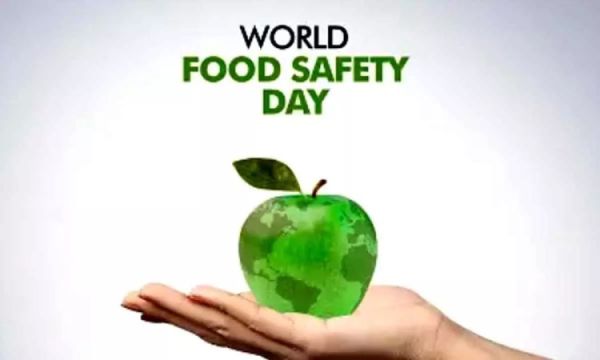
Every year on October 16, the world comes together to confront hunger and food poverty on World Food Day. As millions of people suffer with food shortages and hunger globally, it draws attention to the significance of sustainable agriculture, fair food distribution, and access to wholesome meals for everyone.

“Right to Food for a Better Life and a Better Future” is the theme for 2024.
The fundamental reality of having access to food is a fundamental human right, as emphasized by the World Food Day 2024 theme, “Right to Food for a Better Life and a Better Future.” Even though the world produces enough food, millions of people still go hungry as a result of things like violence, unstable economies, and climate change. The theme for this year is for quick action to guarantee that everyone has access to and can afford wholesome meals.
The World Food Day’s past
The Food and Agriculture Organization (FAO) of the United Nations was founded on October 16, 1945, and today is World Food Day. The FAO, which was established in response to post-war starvation, has played a crucial role in promoting sustainable agricultural practices and addressing global food security. Since its founding, global Food Day has developed into a forum for advancing this goal by increasing awareness and motivating people to take action to end global hunger.
What Makes World Food Day Important
World Food Day is a call to action as much as a reminder of the world’s hunger problems. It draws attention to how important it is to achieve food security via sustainable agriculture, ethical food production, and equitable distribution. Together, governments, organizations, and people take part in activities and campaigns aimed at ending hunger and ensuring that everyone has access to wholesome food.
How to Mark World Food Day
People and groups may actively participate in World Food Day in a number of ways:
1. Share a Meal: Prepare meals for the less fortunate or make donations to nearby food banks and hunger relief organizations to help those in need.
2. Encourage Food-Focused Events: Take part in gatherings organized by neighborhood eateries with the goal of promoting initiatives to end hunger. These events often provide distinctive dining opportunities while supporting charitable causes.
3. Mindful Eating: Savor your favorite dish, but take a moment to acknowledge your privilege of having access to food and consider how you might contribute to the development of a more just food system.
4. Host a Discussion: Plan a lunch for yourself and your loved ones and start a dialogue on reducing food waste, adopting sustainable eating habits, and assisting regional food systems.
Guidelines for Food Safety for Health and Welfare
Safe food handling procedures are also emphasized on World Food Day. Food safety may be increased by using appropriate handling, preparation, and storage methods. Here are a few crucial pointers:
1. Wash Totally: To get rid of dirt and impurities, rinse fruits and vegetables under running water.
2. Use Clean Water: When cleaning, cooking, or preparing food, always use potable, clean water.
3. Cook to the Correct Temperature: To ensure that hazardous germs are killed, make sure food is cooked to the proper temperature.
4. Refrigerate Perishables: To stop bacterial development, keep dairy products and other perishables in the refrigerator.
5. Keep Dry Goods and Liquids Separate: To prevent mold and contamination, keep dry goods like grains and liquids apart.
6. Avoid Cross-Contamination: To avoid contamination, keep raw and prepared meals in separate containers.
7. Keep Clean Storage locations: To prevent insect infestations, keep food storage locations covered and clean.
After World Food Day: A Guide to Sustaining a Well-Balanced Diet
Healthy eating practices should be encouraged all year round by the values that are highlighted on World Food Day. The following advice may help you maintain a healthy, well-balanced diet:
1. Eat more fruits and vegetables: To make sure you’re receiving all the nutrients you need, try to include a colorful range of fruits and vegetables in your diet.
2. Limit sugary meals: To increase energy and enhance general health, cut down on sugary beverages and processed meals.
3. Remain Hydrated: To ensure that your body is operating at its best, sip on plenty of water throughout the day.
4. Select Whole Meals: Whenever feasible, go for fresh, unprocessed meals.
5. Include Nuts and Seeds: Include nuts and seeds in your diet to get essential nutrients, protein, and healthy fats.
6. Moderate Alcohol Intake: Limit alcohol intake to promote general wellbeing.
We can all help create a future where everyone has access to healthy, nutrient-dense, and culturally acceptable food by embracing the spirit of World Food Day.